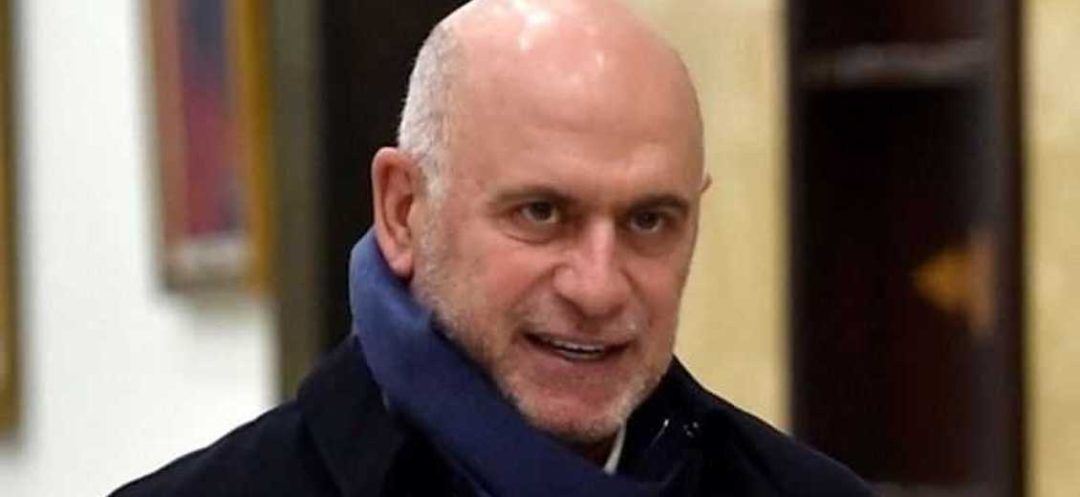
The office of the Advocate General at the Court of Cassation, Judge Sabouh Sleiman, has addressed the investigations office of the Directorate General of Internal Security, requesting the revocation of the arrest warrant in absentia issued on September 16, 2020, against former Minister Youssef Fenianos for his alleged involvement in the Beirut Port explosion. Consequently, according to this decision, Fenianos is no longer wanted by the courts.
It should be recalled that Judge Imad Kabalan had previously suspended the execution of the arrest warrant against MP Ali Hassan Khalil in the same case.
Youssef Fenianos, a former minister and close associate of Marada leader Sleiman Frangieh, was charged in July 2021 with criminal negligence by the judge in charge of investigating the Beirut Port explosion, Tarek Bitar. He did not appear in court, however, to consider appeals lodged by his lawyers on grounds of "procedural irregularities." When the former Minister of Public Works failed to appear for questioning on September 15, 2021, Judge Bitar issued a warrant for Fenianos' arrest in absentia, arguing that Fenianos was aware of the summons and had knowingly refused to appear.
A week later, Fenianos' lawyers asked for Judge Bitar's recusal on the grounds of "legitimate suspicion."
The investigation into the Beirut Port explosion is suspended due to the obstacles caused by political forces against Tarek Bitar. Furthermore, on January 25, 2023, Ghassan Oueidat, Public Prosecutor at the Court of Cassation, initiated proceedings against Tarek Bitar for "rebellion against justice" and "usurpation of power." Ghassan Oueidat's lawsuit was filed two days after Judge Bitar decided to resume the Port explosion investigation following a legal study he had carried out. According to this study, "no legal text provides for the recusal of an investigating judge at the Court of Justice." In so doing, he had tried to free himself from multiple abusive appeals brought against him by politicians since December 2021.
In September 2020, the US Treasury Department sanctioned Youssef Fenianos and Ali Hassan Khalil for corruption and supporting Hezbollah. Their assets in the United States were frozen, and any financial transaction with them was criminalized.
This "judicial" decision closes another door in the Beirut Port explosion investigation.
It should be recalled that Judge Imad Kabalan had previously suspended the execution of the arrest warrant against MP Ali Hassan Khalil in the same case.
Youssef Fenianos, a former minister and close associate of Marada leader Sleiman Frangieh, was charged in July 2021 with criminal negligence by the judge in charge of investigating the Beirut Port explosion, Tarek Bitar. He did not appear in court, however, to consider appeals lodged by his lawyers on grounds of "procedural irregularities." When the former Minister of Public Works failed to appear for questioning on September 15, 2021, Judge Bitar issued a warrant for Fenianos' arrest in absentia, arguing that Fenianos was aware of the summons and had knowingly refused to appear.
A week later, Fenianos' lawyers asked for Judge Bitar's recusal on the grounds of "legitimate suspicion."
The investigation into the Beirut Port explosion is suspended due to the obstacles caused by political forces against Tarek Bitar. Furthermore, on January 25, 2023, Ghassan Oueidat, Public Prosecutor at the Court of Cassation, initiated proceedings against Tarek Bitar for "rebellion against justice" and "usurpation of power." Ghassan Oueidat's lawsuit was filed two days after Judge Bitar decided to resume the Port explosion investigation following a legal study he had carried out. According to this study, "no legal text provides for the recusal of an investigating judge at the Court of Justice." In so doing, he had tried to free himself from multiple abusive appeals brought against him by politicians since December 2021.
In September 2020, the US Treasury Department sanctioned Youssef Fenianos and Ali Hassan Khalil for corruption and supporting Hezbollah. Their assets in the United States were frozen, and any financial transaction with them was criminalized.
This "judicial" decision closes another door in the Beirut Port explosion investigation.
Read more



Comments